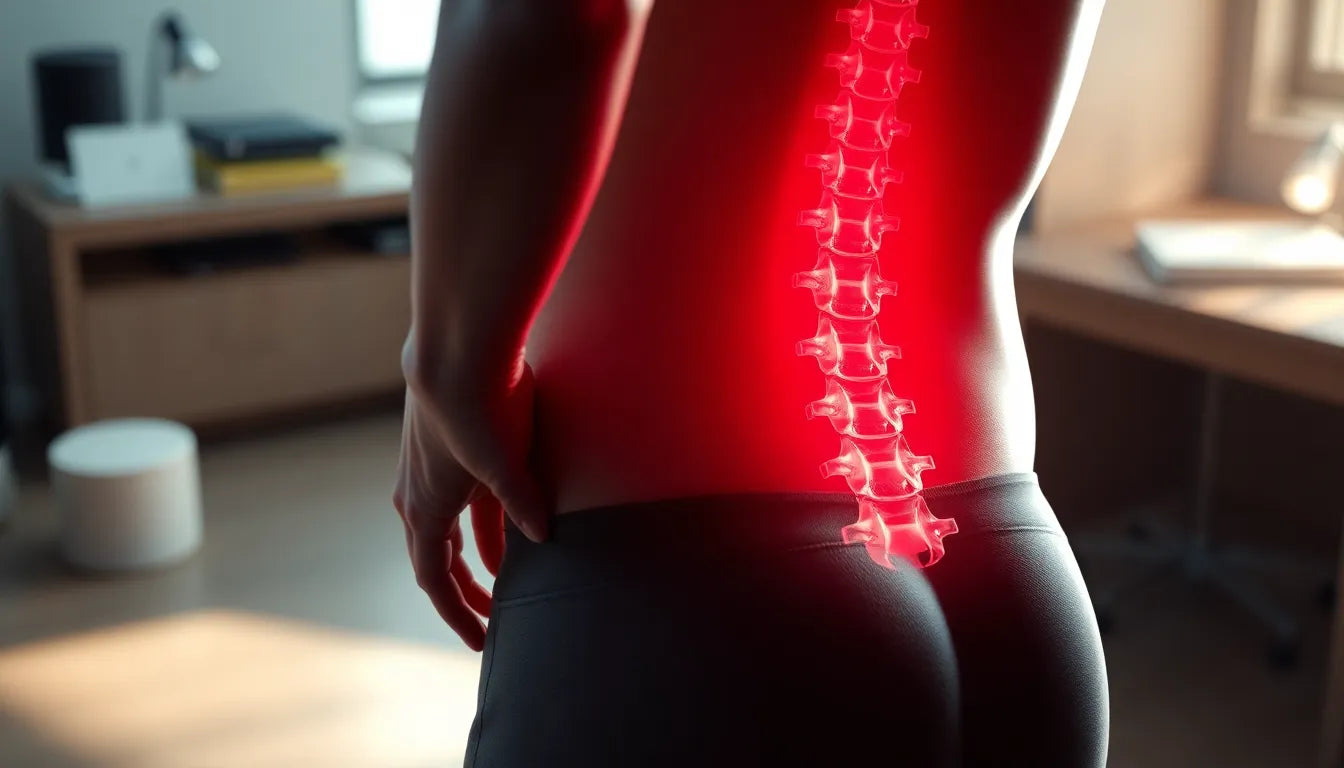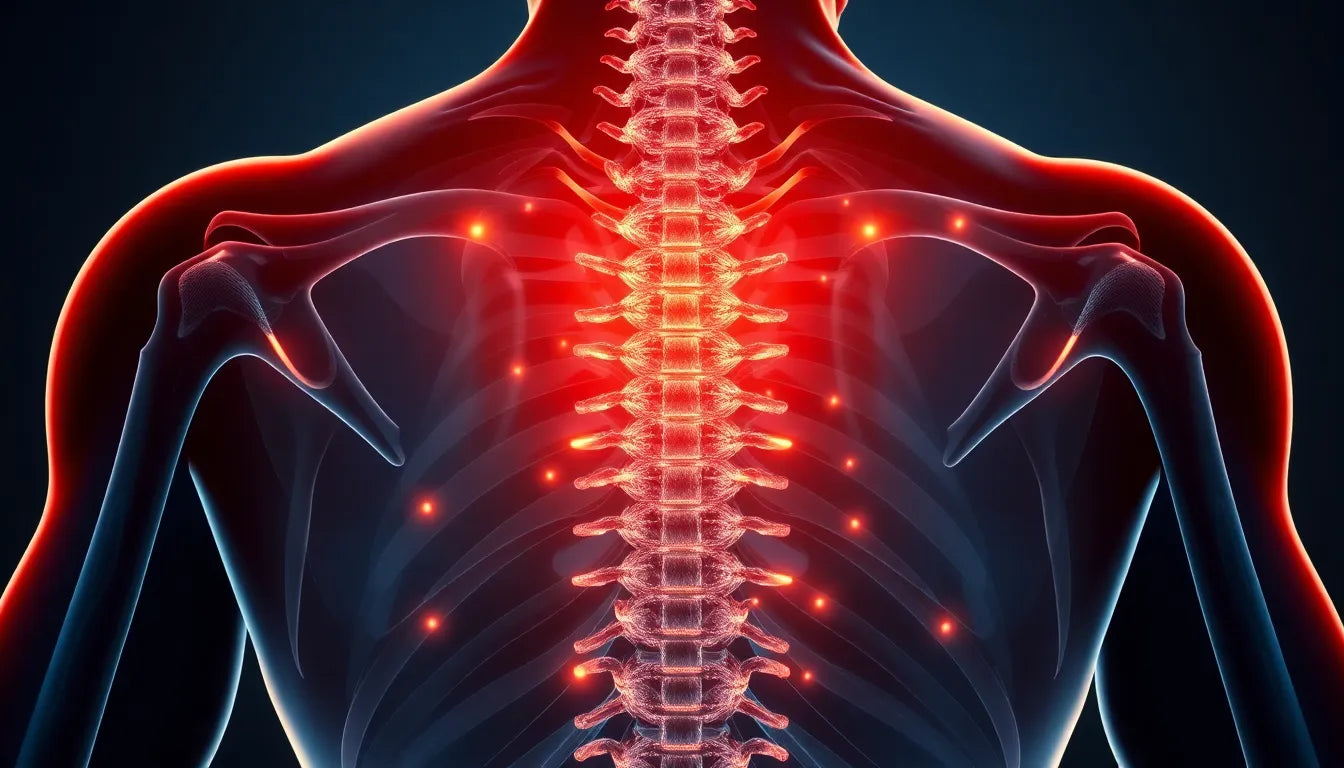Herniated discs are a common ailment that can significantly impact daily life, causing discomfort and limiting mobility. This condition occurs when the soft inner gel of a spinal disc pushes through a tear in the tougher exterior, often pressing on nearby nerves. As a result, individuals may experience pain, numbness, or weakness, particularly in the back, legs, or arms. While the discomfort can be daunting, understanding what should not be done with a herniated disc is crucial for effective management and recovery.
The importance of awareness in managing herniated discs
Awareness is key when dealing with a herniated disc. Missteps or misconceptions can exacerbate the condition, prolonging recovery and potentially leading to further complications. Informed decisions regarding activities and lifestyle choices can have a profound impact on recovery time and overall quality of life. By avoiding certain common mistakes, individuals can better manage their symptoms and work towards a more comfortable and active lifestyle.
What to expect from this guide
This guide aims to provide readers with valuable insights into the common mistakes to avoid when dealing with a herniated disc. From specific activities that should be avoided to lifestyle adjustments that promote optimal recovery, we will cover essential tips to help you navigate this condition. By understanding the pitfalls and knowing what to steer clear of, you can take proactive steps towards managing your herniated disc effectively.
Whether you're dealing with a herniated disc yourself or supporting someone who is, this guide will equip you with the knowledge needed to avoid exacerbating the condition. Stay tuned as we delve into the specifics of common mistakes, activities to avoid, and lifestyle changes that can aid in recovery. Empower yourself with the right information to make informed decisions and support your journey towards a pain-free life.
Common mistakes to avoid with a herniated disc
When dealing with a herniated disc, it's essential to understand the common mistakes that can hinder recovery and exacerbate symptoms. Ignoring pain is one of the most significant errors individuals make. Pain serves as a warning sign, indicating that something is wrong. Ignoring it can lead to further damage and complications. Seeking specialist advice early is crucial to prevent the condition from worsening and to receive appropriate treatment tailored to your needs.
Overexertion is another pitfall to avoid. Engaging in heavy lifting or sudden, strenuous movements can significantly aggravate a herniated disc. This is particularly relevant in both occupational settings and during exercise routines. For instance, lifting heavy objects at work or performing high-impact workouts without proper guidance can increase the risk of further injury. It's vital to recognize your limits and avoid activities that put undue stress on your spine.
On the flip side, complete inactivity can also be detrimental. While rest is necessary during the acute phase of pain, prolonged sitting or inactivity can weaken the muscles that support the spine, delaying recovery. Incorporating light, guided exercises once the acute pain subsides can help strengthen these muscles and support healing. Activities such as gentle walking or swimming, under professional guidance, can promote circulation and flexibility without straining the back.
Self-medication is a common mistake that can have serious consequences. Using inappropriate painkillers without professional guidance can mask symptoms without addressing the root cause of the problem. Over-the-counter medications may provide temporary relief, but they do not offer a long-term solution. Consulting a healthcare professional for a comprehensive treatment plan is essential for effective management of a herniated disc.
Specific movements and activities to avoid
Certain movements and activities can exacerbate a herniated disc, and it's important to be aware of these to prevent further injury. Twisting motions, especially during stretching or everyday activities, can aggravate the condition. Common scenarios where twisting might occur unintentionally include reaching for objects or turning quickly. Being mindful of your movements and avoiding sudden twists can help protect your spine.
Exercises involving lower spine flexion, such as sit-ups, crunches, toe-touches, and forward bends, should be avoided. These movements put extra pressure on the lumbar discs, potentially worsening the herniation. Instead, focus on exercises that promote core stability while keeping the spine neutral. Planks and bridges are excellent alternatives that strengthen the core without straining the back.
Prolonged sitting is another activity that can negatively impact a herniated disc. Sitting for long periods, especially over an hour, can lead to muscle weakening and increased pressure on the spine. To alleviate this, incorporate regular movement into your daily routine. Set reminders to stand up, stretch, or take short walks throughout the day. Ergonomic chairs and proper desk setups can also help reduce strain during prolonged sitting.
By avoiding these common mistakes and being mindful of specific movements, you can better manage a herniated disc and promote a smoother recovery. In the next section, we will explore lifestyle and recovery mistakes to avoid, as well as provide answers to frequently asked questions about herniated discs. Stay informed and proactive in your approach to managing this condition for a more comfortable and active life.
Lifestyle and recovery mistakes to avoid with a herniated disc
When managing a herniated disc, it's not just about avoiding specific movements; lifestyle factors also play a crucial role in recovery. Poor nutrition and dehydration are often overlooked but can significantly impair healing. A balanced, nutrient-rich diet supports tissue repair and overall health, while adequate hydration ensures that the spinal discs remain flexible and resilient. Incorporating foods rich in omega-3 fatty acids, antioxidants, and vitamins can aid in the recovery process and reduce inflammation.
Skipping professional rehabilitation is another common mistake that can hinder recovery. Physical therapy and other prescribed treatments are tailored to strengthen the muscles supporting the spine, improve flexibility, and alleviate pain. By neglecting these therapies, individuals risk prolonging their recovery time and potentially experiencing incomplete healing. Adhering to a rehabilitation plan, including exercises and stretches recommended by healthcare professionals, is vital for regaining mobility and preventing future issues.
Frequently Asked Questions
What are the first steps I should take if I suspect a herniated disc?
If you suspect a herniated disc, it is essential to seek medical evaluation promptly. A healthcare professional can provide an accurate diagnosis and recommend an appropriate treatment plan tailored to your specific needs. Early intervention can prevent the condition from worsening and help manage symptoms effectively.
Can I continue exercising with a herniated disc?
Yes, you can continue exercising with a herniated disc, but it's crucial to modify your routine to avoid straining the spine. Focus on low-impact exercises that promote core stability without exacerbating your condition. Consulting a physical therapist can help you develop a safe and effective exercise plan.
How long does recovery from a herniated disc typically take?
Recovery time from a herniated disc varies depending on the severity of the condition and adherence to treatment. Most individuals experience improvement within a few weeks to months. Following professional advice and engaging in prescribed rehabilitation can facilitate a smoother recovery.
Is surgery always necessary for a herniated disc?
No, surgery is not always necessary for a herniated disc. Many cases can be managed with conservative treatments such as physical therapy, medication, and lifestyle modifications. Surgery is typically considered when symptoms persist despite these interventions or if there is significant nerve compression.
How can I prevent future herniated discs?
Preventing future herniated discs involves maintaining good posture, engaging in regular exercise to strengthen core muscles, and avoiding activities that place excessive strain on the back. Incorporating ergonomic practices in your daily routine and staying mindful of your movements can also help reduce the risk of re-injury.
By understanding and avoiding these common mistakes, you can better manage a herniated disc and enhance your recovery journey. Stay informed and proactive in your approach, and consult healthcare professionals for personalized advice and support. With the right strategies, you can work towards a pain-free and active lifestyle.


















